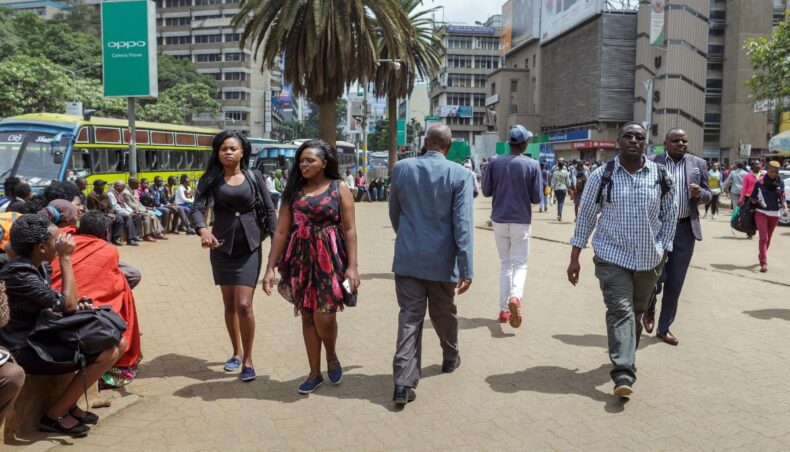A prominent public servant in Kenya has had her assets frozen, there is a member of parliament who was fined $7 million for corruption and sentenced to 67 years in prison, and there are MPs who have been found guilty of bribery, economic crimes, and impersonating corruption investigators.
All are running in Kenya’s presidential and parliamentary elections on August 9, adding to voter resentment over the widespread corruption in a nation that has long been regarded as one of East Africa’s most dynamic democracies.
The Ethics and Anti-Corruption Commission (EACC), the government’s anti-corruption agency, suggested that 241 candidates be barred from running, but just five were.
The election board declined to comment on specific cases but claimed that the constitution only permits it to disqualify candidates based on convictions in circumstances where they have exhausted all other appeals.
Phillip Kagucia, the deputy director of the EACC, claimed that the lawmakers who created the constitution ensured they had a backdoor. “That gateway makes us open to leadership that lacks moral character.”
Bible scriptures regarding excellent leadership are printed out and hung on the wall behind him.
55 persons with criminal charges, three people who have been convicted of crimes, and 11 under investigation were on the EACC’s list of applicants who should be disqualified, which was shared with Reuters. Others were accused of failing to retire from public service, which was a prerequisite for running, or of falsifying educational credentials.
Deputy President William Ruto and seasoned opposition figure Raila Odinga, the front-runners for the presidency, have both pledged to take action against corruption. However, many disappointed Kenyans find these promises to be empty.
A motorbike taxi driver in Nairobi named Daniel Musau remarked, “Corruption is a serious problem. “It prevents people from voting. Because of the corruption problem, a large number of people lack voting rights.”
One of the lowest levels since the introduction of multi-party democracy in 1992, voter registration drives failed to register even half of the 6 million individuals that were targeted.
‘Imprisoned Candidates’
John Waluke, a representative representing Sirisia’s rural western constituency, is one of those who have been given the opportunity to speak. He was found guilty in 2020 and sentenced to 67 years in prison and a $7 million fine for fabricating paperwork pertaining to a government contract to purchase maize. He is currently out on bail while his conviction is being appealed.
By October, according to Waluke, the Anti-Corruption Court should provide a decision; if not, he intends to appeal the decision all the way to the Supreme Court.
He claimed, “I was sentenced politically.
In spite of being charged with crimes related to her time spent as the senior secretary at the Ministry of Public Service, Youth, and Gender Affairs, Lilian Muthoni Omollo is running for governor of Embu County in central Kenya. Authorities claim that while she was in charge, over $4.7 million was lost or stolen.
She was required to hand over $105,000 and 2.2 million Kenyan shillings ($18,500) in accounts linked to her by court order in April 2020. She claimed to the court that she sold vegetables to make her living. The case is still pending.
Omollo and a Jubilee party official did not respond to requests for comment.
‘Guilty as charged’
Other candidates for the national and county legislatures have been found guilty of accepting bribes and pretending to be EACC investigators, or they are currently facing accusations of forgery, hiring relatives, embezzling money, and taking public property.
Six individuals on the watchdog’s list were disqualified from running for office by the election board: two governors, a senator who had been impeached, two candidates for governor who lacked the requisite academic credentials, and a county assembly member who had been convicted of bribery. The decision to exclude the senator was overturned by a court.
The board did not provide numbers but stated that anyone who had not resigned from public service would likewise be disqualified.
Mike Sonko, a former governor of Nairobi who was well-known for his flashy fashion sense, heavy gold jewelry, and spontaneous rap videos, was one of those disqualified from running since he had been impeached. He is accused of conspiracy, money laundering, misuse of office, and other crimes, all of which he vigorously denies.
Sonko’s attorney, George Khaminwa, stated that they had filed a petition with the Supreme Court challenging his disbarment and will demonstrate how doing so violated his constitutional rights.
For the largest economy in East Africa, the election is considered as a crucial test of stability because two of the country’s most recent elections were plagued by bloodshed due to disputes about purported cheating.
And once more, candidates for president are accusing one another of corruption.
Odinga has promised to reclaim the property he claims Ruto stole. No charges had been filed against the deputy president, according to Ruto’s spokeswoman, who denied the accusations. He is not listed on the EACC, and according to a police spokesman, the allegations are not the subject of an ongoing investigation













